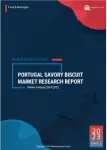Market Research Future (MRFR) has published on the “Global Australia Fats & Oil Market”.
Market Synopsis
The Australia fats & oil market was valued at USD 1,979.36 million in 2022 and expected to reach USD 2,857.85 million by 2032, registering a CAGR of 3.78% over the forecast duration.
The Australian fats and oils market is driven by factors such as changing consumer preferences, health consciousness, and evolving food industry trends. Over the past few years, the market has experienced steady growth attributed to the increasing demand for healthier cooking oils, rising awareness regarding the benefits of plant-based oils, and the growing food processing industry. Consumers are becoming more health-conscious, leading to a shift towards oils with higher nutritional value, such as olive oil, avocado oil, and coconut oil, while traditional options like canola and sunflower oil continue to maintain their popularity.
COVID-19 Impact on the Australian fats and oils Market.
The COVID-19 pandemic has significantly disrupted the supply chain dynamics of the oil and fats market in Australia. As restrictions and lockdown measures were implemented globally, including in major oil-producing regions, the movement of goods faced unprecedented challenges. Australia, despite being a net importer of oils and fats, experienced disruptions in both domestic production and international trade.
One of the primary impacts on the supply chain was the disruption in transportation. With restrictions on movement and international travel bans, logistics faced significant hurdles. Shipping routes were disrupted, leading to delays in the delivery of raw materials and finished products. Moreover, labor shortages and social distancing measures further complicated the efficient functioning of ports and transportation hubs, exacerbating supply chain bottlenecks.
Another crucial aspect of the supply chain disruption was the impact on global oil prices. The pandemic-induced economic slowdown led to a dramatic drop in oil prices, creating uncertainty and volatility in the market. This fluctuation affected the cost of raw materials and production inputs for Australian oil and fats manufacturers, further straining their supply chain management.
Additionally, the closure of manufacturing facilities and processing plants worldwide disrupted the flow of intermediate goods and ingredients necessary to produce oils and fats products in Australia. The interdependence of global supply chains became apparent as shortages or delays in one region cascaded into disruptions across the entire value chain.
Access full report @ https://www.marketresearchfuture.com/reports/australia-fats-oil-market-21736
Competitive Landscape
The fats and oils market in Australia is characterized by both domestic players and multinational corporations vying for market share. At the forefront of the industry are established companies such as Goodman Fielder, a leading integrated food company renowned for its diverse portfolio of fats and oils products. The key players operating in the global Australian fats and oils market comprise Cargill, Inc (US), Bunge Limited (US), Wilmar International LTD (Singapore), Archer Daniels Midland Company (US), Mewah International Inc (Singapore), Fuji Oil Holdings Inc. (Italy), Nestlé (Switzerland), Conagra Foodservice, Inc. (Japan), Premium Vegetable Oils Sdn Bhd (Malaysia), 3F Industries Limited (India), Unilever Plc (UK), Associated British Foods Plc (UK) among others.
Segmentation
By Product Type
- Oil: The oil segment within the fats and oils industry in Australia represents a diverse array of products derived from various plant and animal sources. These oils serve as essential components in both culinary and industrial applications, catering to the needs of consumers and businesses alike. One prominent type of oil in this segment is vegetable oil, which encompasses oils extracted from seeds, fruits, and nuts such as canola, sunflower, soybean, and olive oil. Canola oil holds a significant market share due to its versatility, mild flavor, and high smoke point, making it suitable for frying, baking, and salad dressings. Sunflower oil, with its light taste and high levels of vitamin E, finds applications in cooking and skincare products. Soybean oil is another key player, known for its neutral flavor profile and high smoke point, making it a preferred choice for frying and industrial food processing.
- Fats: The fats segment within Australia's fats and oils industry represents a distinct category characterized by its solid-state at room temperature. Fats are primarily sourced from animal and vegetable origins and serve various culinary, nutritional, and industrial purposes. One prominent type of fat in this segment is butter, derived from milk, and widely used in cooking, baking, and food preparation for its rich flavor and texture. Margarine, a vegetable-based fat substitute, has also gained popularity as a healthier alternative to butter, particularly among health-conscious consumers seeking to reduce their saturated fat intake.
By End-User
- Residential: The residential segment of the fats and oils market in Australia encompasses consumers who purchase and utilize fats and oils for household cooking, baking, and food preparation purposes. This segment represents a vast portion of the market, catering to individual households and their culinary needs. In Australian homes, fats and oils are fundamental ingredients used in various cuisines, including frying, roasting, baking, and salad dressings.
- Commercial: The commercial segment of the fats and oils market in Australia caters to businesses and institutions such as restaurants, cafes, bakeries, catering services, and food manufacturers. Unlike the residential segment, which focuses on individual consumer preferences and needs, the commercial sector operates on a larger scale to meet the demands of food service establishments and industrial food production.
By Source
- Plant: Plant fats and oils in Australia are primarily derived from various sources, including canola, olive, cottonseed, and others. Canola oil, extracted from the seeds of the canola plant, is one of the most widely consumed vegetable oils in Australia. It is known for its high smoke point and neutral flavor, making it suitable for a wide range of culinary applications, including frying, baking, and salad dressings. Canola oil is also praised for its heart-healthy properties, being low in saturated fat and high in monounsaturated and polyunsaturated fats.
- Animal: Animal fats and oils in Australia originate primarily from sources such as pigs, cattle, sheep, and others. In animal fats, pork fat, derived from pigs, holds a significant place in Australian culinary traditions. Rendered pork fat, known as lard, is prized for its rich flavor and versatility in cooking. It is commonly used in baking, frying, and as a flavor enhancer in various dishes. While its consumption has declined in some Western countries due to health concerns, lard continues to be valued in traditional and ethnic cuisines.
By Sales Channel
- Direct: Direct sales channels in the Australian Fats & Oil market refer to the distribution and selling of fats and oils products directly from the manufacturer or producer to the end consumer or user without involving intermediaries. This channel often involves a direct interaction between the manufacturer and the consumer, which allows for better control over product quality, pricing, and customer relationships.
- Indirect: Indirect sales channels in the Australian Fats & Oil market involve the use of intermediaries such as wholesalers, distributors, retailers, and online marketplaces to distribute and sell fats and oils products to end consumers. This channel provides manufacturers with access to a wider distribution network and allows them to reach consumers through established retail outlets and online platforms.
By Application
- Food & Beverages: The Food & Beverages segment within the fats and oils industry in Australia encompasses a diverse range of products and applications. Fats and oils are integral ingredients in many food and beverage formulations, serving various purposes such as flavor enhancement, texture improvement, and shelf-life extension. In food processing, fats and oils are used in the production of snacks, fried foods, sauces, dressings, and margarine, among others. They play a crucial role in providing mouthfeel and contributing to the sensory attributes of food products. Additionally, fats and oils are essential components in the formulation of various beverages, including flavored drinks, smoothies, and nutritional supplements. The versatility of fats and oils makes them indispensable in the food and beverage industry, where they are utilized for their functional properties and nutritional benefits.
- Cosmetics & Personal Care: In the Cosmetics & Personal Care segment, fats and oils serve as essential ingredients in the formulation of skincare, haircare, and cosmetic products in Australia. These fats and oils are valued for their emollient properties, which help to moisturize and condition the skin and hair, leaving them soft, smooth, and hydrated. Fats and oils act as natural barriers, protecting the skin from environmental aggressors and preventing moisture loss, making them indispensable in the production of lotions, creams, balms, and serums. Moreover, certain oils, such as coconut oil and argan oil, are renowned for their nourishing and rejuvenating properties, making them popular ingredients in anti-aging and skincare formulations.
- Animal Feed: In the Animal Feed segment, fats and oils play a crucial role in the formulation of balanced diets for livestock, poultry, and aquaculture in Australia. Fats and oils serve as concentrated sources of energy and essential fatty acids, providing animals with the nutrients needed for growth, reproduction, and overall health. In animal feed formulations, fats and oils are incorporated to improve feed palatability, enhance nutrient absorption, and optimize energy utilization, particularly in high-performance diets for dairy cows, broiler chickens, and swine. Moreover, fats and oils act as carriers for fat-soluble vitamins and other micronutrients, ensuring proper nutrient delivery and absorption in animals.
- Pharmaceuticals: In the Animal Feed segment, fats and oils play a crucial role in the formulation of balanced diets for livestock, poultry, and aquaculture in Australia. Fats and oils serve as concentrated sources of energy and essential fatty acids, providing animals with the nutrients needed for growth, reproduction, and overall health. In animal feed formulations, fats and oils are incorporated to improve feed palatability, enhance nutrient absorption, and optimize energy utilization, particularly in high-performance diets for dairy cows, broiler chickens, and swine. Moreover, fats and oils act as carriers for fat-soluble vitamins and other micronutrients, ensuring proper nutrient delivery and absorption in animals.
-
Others: The others segment encompasses a broad spectrum of applications and industries where fats and oils are utilized for specialized purposes beyond the categories mentioned earlier. This segment includes sectors such as industrial lubricants, biofuels, and chemical manufacturing, where fats and oils serve as raw materials or functional additives in the production of a wide range of products. In industrial lubricants, certain vegetable oils and synthetic esters are used as environmentally friendly alternatives to mineral-based lubricants, offering superior lubricity, thermal stability, and biodegradability.
Leading companies partner with us for data-driven Insights
Kindly complete the form below to receive a free sample of this Report
| Companies Covered | 15 |
| Pages | 101 |
Certified Global Research Member


Why Choose Market Research Future?
- Vigorous research methodologies for specific market.
- Knowledge partners across the globe
- Large network of partner consultants.
- Ever-increasing/ Escalating data base with quarterly monitoring of various markets
- Trusted by fortune 500 companies/startups/ universities/organizations
- Large database of 5000+ markets reports.
- Effective and prompt pre- and post-sales support.
Tailored for You
- Dedicated Research on any specifics segment or region.
- Focused Research on specific players in the market.
- Custom Report based only on your requirements.
- Flexibility to add or subtract any chapter in the study.
- Historic data from 2014 and forecasts outlook till 2040.
- Flexibility of providing data/insights in formats (PDF, PPT, Excel).
- Provide cross segmentation in applicable scenario/markets.



















